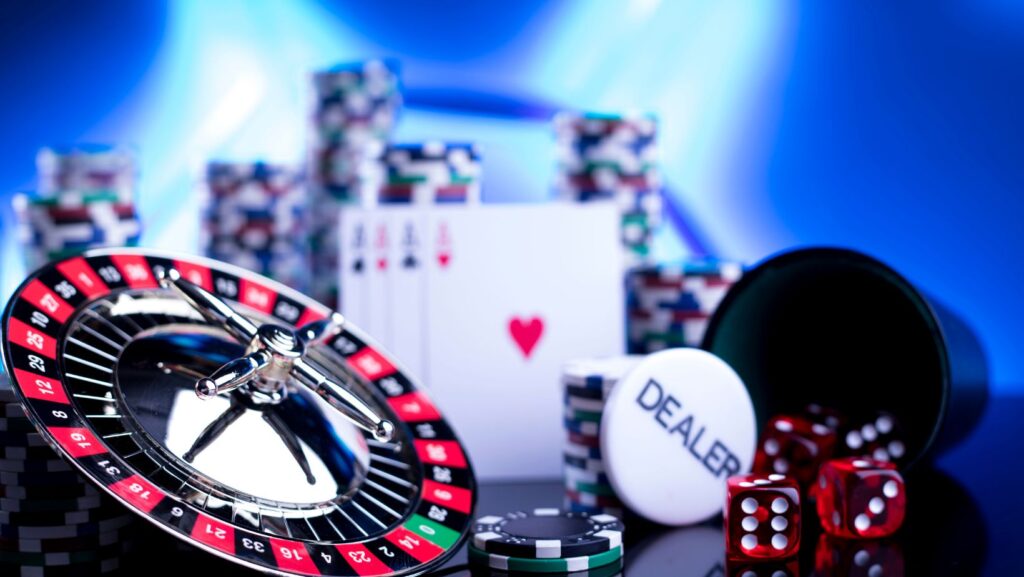Been there? That gut-punch when your money vanishes, then something clicks and you’re dropping bigger bets to recover. This loss-chasing habit breaks more gamblers than anything else. I’ve seen smart people blow entire paychecks in hours this way.
Let me show you why your brain sabotages your gambling decisions after losses, plus give you battle-tested ways to halt this pattern before it empties your accounts—or worse.
For those serious about maintaining control while gambling, RollXO offers comprehensive responsible gaming tools, including customizable deposit limits and cooling-off periods. Their welcome package of up to AU$22,500 plus 350 free spins is structured across four deposits to discourage excessive initial spending, while their unique VIP program rewards disciplined play through 25 progression levels.
The Psychology Behind Chasing Losses
1. The Sunk Cost Fallacy
Drop $200 at the tables and walking away stings like surrender. Your inner voice yells, “Too much invested to quit!” Welcome to sunk cost thinking—that mental glitch making you cling to money already gone.
I once watched a player lose $300 playing blackjack, then switch to roulette with higher bets “to get it back quickly.” Three hours later, he was down $1,500 and still betting.
What Works?
- Set a mental reset button—treat each new bet as a completely independent decision.
- Ask yourself: “Would I make this bet if I just sat down fresh?”
- Calculate your expected value on the next bet, not how much you need to recover.
2. Near-Miss Effect
That slot machine showing two jackpot symbols and missing the third by a hair? That’s a near-miss, and it’s designed to keep you playing. Research shows near-misses trigger similar brain responses to wins, creating the illusion that you’re “getting closer” to success.
What Works?
- Recognize that near-misses are losses, not partial wins.
- Understand that each spin is independent—the machine doesn’t “remember” your near-misses.
- Switch games if you find yourself fixating on near-misses.
Quick Tip: Most online slots let you set loss limits that automatically stop play when reached. Set these before you start—not after you’ve already lost.
Need a break from real-money gaming while learning better habits? Free IGT Slots – Play 442+ Slot Machine Games Online provides risk-free alternatives.
3. Loss Aversion
Humans feel losses twice as intensely as equivalent gains. Losing $100 hurts more than winning $100 feels good. This evolutionary wiring pushes us to try eliminating the pain of loss quickly—often by making increasingly risky bets.
What Works?
- Schedule short breaks after losses to let the emotional impact fade.
- Reframe losses as “entertainment costs” rather than money that needs recovering.
- Track your wins as carefully as your losses to maintain perspective.
4. The Gambler’s Fallacy
“I’ve lost seven hands in a row—I’m due for a win!” This gambler’s fallacy ignores the simple truth that random events don’t have memory. Each bet is independent of previous outcomes.
I fell for this myself years ago, doubling my roulette bets after five consecutive reds, convinced black was “due.” The wheel doesn’t know or care about previous spins.
What Works?
- Accept that patterns in random events are coincidences, not trends.
- Calculate the house edge on your next bet—it hasn’t changed regardless of your streak.
- Switch to games with lower volatility if you’re prone to seeing patterns.
Warning: Betting systems like Martingale (doubling after losses) mathematically guarantee bankruptcy over time. No system can overcome the house edge through bet sizing alone.
Practical Strategies to Stop Chasing Losses
1. Set and Stick to Loss Limits
Before you play, decide exactly how much you’re willing to lose. When you hit that number, stop—no exceptions. I use the “two-wallet method”: one wallet for gambling funds, one for everything else. When the gambling wallet empties, I’m done.
What Works?
- Set your loss limit at 50% of your total session bankroll.
- Use time-based limits alongside money limits.
- Tell someone else your limits for accountability.

2. Use Time-Out Periods
Most gambling sites let you lock yourself out temporarily or forever. Use this feature. Even a day-long timeout prevents heat-of-the-moment decisions that could cost you thousands.
What Works?
- Implement a mandatory 30-minute break after losing 30% of your bankroll.
- Play only during scheduled sessions, not spontaneously when emotions are high.
- Use the casino’s responsible gambling tools to enforce breaks.
3. Track Every Session
Keep detailed records of your gambling activity. This creates accountability and helps identify patterns. Cold, hard numbers on paper crush those myths about “lucky streaks coming” or “just needing one good hand to recover.”
What Works?
- Use a simple spreadsheet or gambling app to log every session.
- Record start/end times, game played, amount won/lost, and emotional state.
- Review your log monthly to spot problematic patterns.
The Bottom Line: Choose Control Over Chaos
Chasing losses isn’t about bad luck but about losing control. The house edge means gambling is mathematically designed for you to lose over time. Your goal should be maximizing entertainment value while minimizing financial damage.

Real gambling expertise is knowing exactly when to fold and leave. Top players rarely have the flashiest wins; they simply keep their cool during inevitable losses.
View gambling like movie tickets—paid fun, not moneymaking schemes. Stop scrambling after losses, and suddenly those games become enjoyable again—exactly as they should be.
